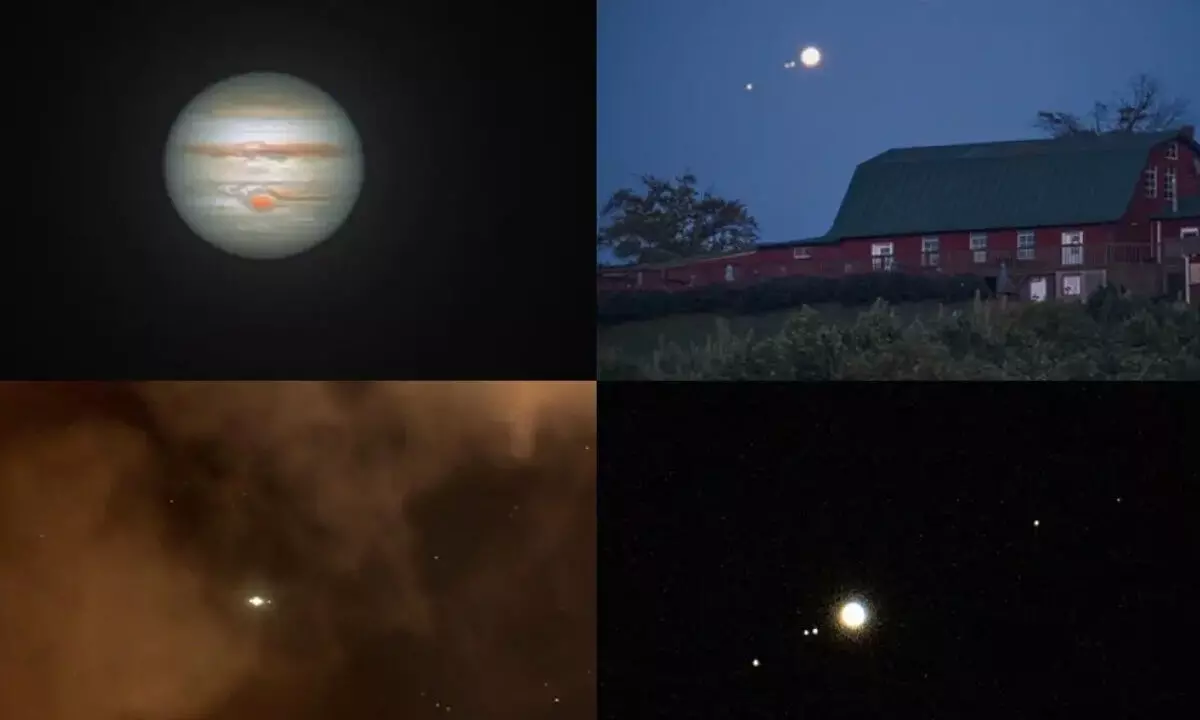4 moons in rare closest date with Earth captured

4 moons in rare closest date with Earth captured
Stargazers across the world were left mesmerised when they caught the closest glimpse of the giant gas planet with its four moons - some lucky souls saw it with just binoculars.
Stargazers across the world were left mesmerised when they caught the closest glimpse of the giant gas planet with its four moons - some lucky souls saw it with just binoculars.
People took to Twitter with images and videos they captured of Jupiter along with its four largest moons -- Io, Europa, Ganymede and Callisto, called the Galilean satellites.
"After staying up all night shooting it, here is my shot of Jupiter at 'Opposition'. This is the closest it has been to Earth in 59 years," tweeted Andrew McCarthy, a stargazer from Arizona state in the US. From the viewpoint of Earth's surface, opposition happens when an astronomical object rises in the east as the Sun sets in the west, placing the object and the Sun on opposite sides of the Earth.
Aloke Kumar, Associate Professor at Indian Institute of Science, Bengaluru tweeted: "Jupiter so bright. It is peering right through the clouds! You can even see three of the Galilean moons!"
Some people even took the shots of Jupiter with smartphones with high-end cameras, and some with large telescopes were able to see the Great Red Spot.
Jupiter's opposition occurs every 13 months, making the planet appear larger and brighter than any other time of the year.
Jupiter's closest approach to the Earth rarely coincides with opposition, which means this year's views were extraordinary.
At its closest approach, Jupiter was approximately 365 million miles in distance from Earth.
The planet is approximately 600 million miles away from Earth at its farthest point. Jupiter has 53 named moons, but scientists believe that 79 have been detected in total.
NASA's Juno spacecraft, which has been orbiting Jupiter for six years, is dedicated to exploring the planet's surface and its moons.
Scientists believe studying Jupiter can lead to breakthrough discoveries about the formation of the solar system.











